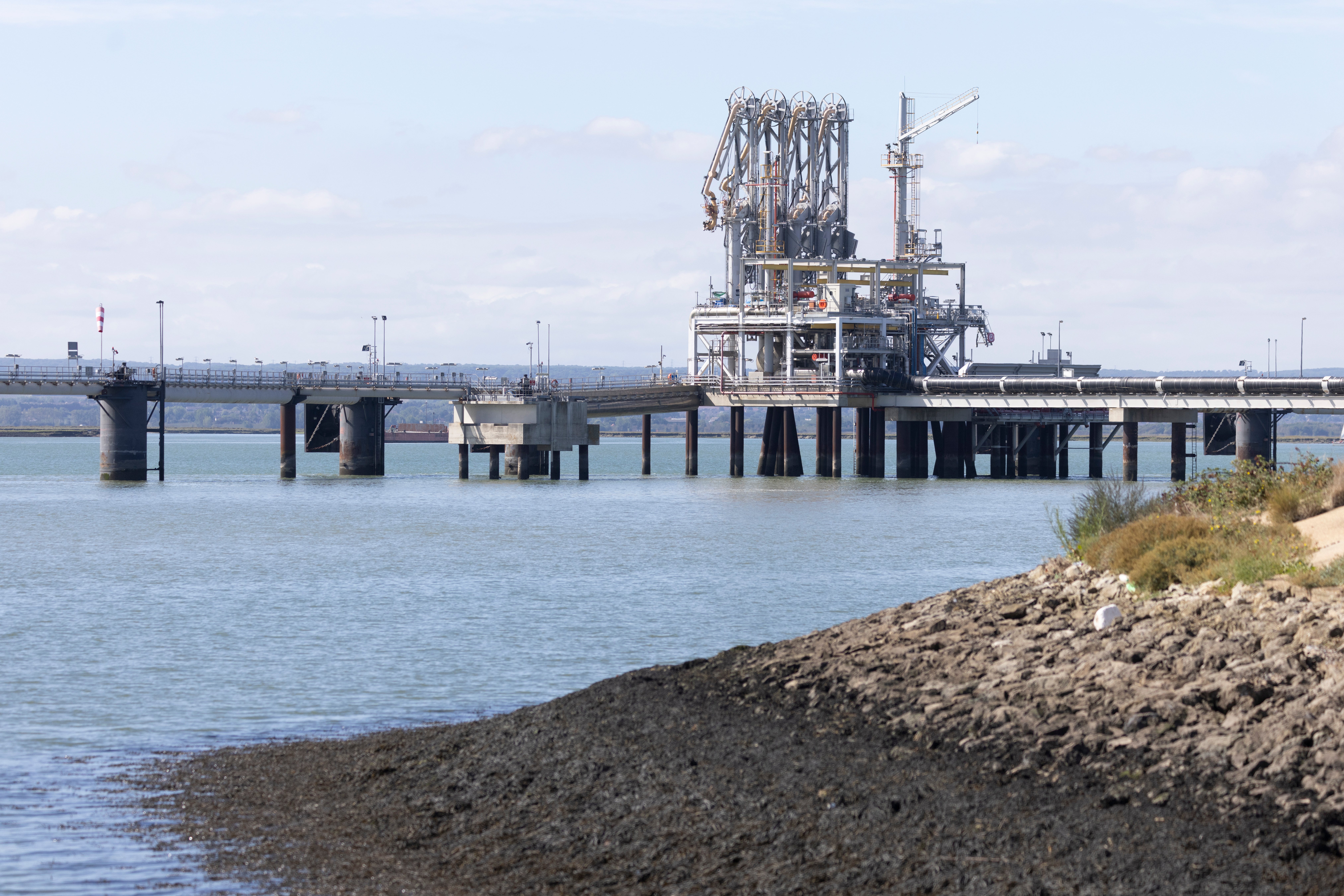Energy bills to top £5,300 by April, new forecast says
Prices to keep on rising after what looks set to be a painful winter
Your support helps us to tell the story
From reproductive rights to climate change to Big Tech, The Independent is on the ground when the story is developing. Whether it's investigating the financials of Elon Musk's pro-Trump PAC or producing our latest documentary, 'The A Word', which shines a light on the American women fighting for reproductive rights, we know how important it is to parse out the facts from the messaging.
At such a critical moment in US history, we need reporters on the ground. Your donation allows us to keep sending journalists to speak to both sides of the story.
The Independent is trusted by Americans across the entire political spectrum. And unlike many other quality news outlets, we choose not to lock Americans out of our reporting and analysis with paywalls. We believe quality journalism should be available to everyone, paid for by those who can afford it.
Your support makes all the difference.Households may have to spend £5,341 per year on energy by next April, a new forecast warns.
A cumulative rise of nearly £3,500 in the energy price cap was estimated by consultancy firm Cornwall Insight, which warned that government support measures will fall short of supporting consumers.
The forecast was the last from the firm before regulator Ofgem announces the new price cap on Friday, which will come into effect on 1 October and last until the end of the year.
Autumn’s expected rise to £3,554 would leave average household bills 80 per cent higher going into the colder months when energy use soars.
It would be a massive jump from today’s £1,971, which resulted from a record-breaking rise from the £1,277 cap of last winter.
A spokesperson for Cornwall Insight said: “While the energy price cap rise in April was already an unprecedented increase in domestic consumer energy bills, our final predictions for October are truly concerning.”
“With the cost of living spiralling and households looking at an energy bill rise of over £1,500 equivalent per year, it is difficult to see how many will cope with the coming winter.”
Things will get worse in the new year, Cornwall Insight said on Monday, prediciting a price cap of £4,650 from January.
From April the price cap is expected to rise even further to £5,341. Bills will drop slightly to £4,768 from July, before hitting £4,807 three months later.
Cornwall Insight said the government needed a longer-term approach than the support package currently on offer, which is a jumble of one-off payments targeting those more in need along with a £400 grant for every household.
A spokesperson said: “The energy crisis is not something which can be solved with hastily pulled together, short-term policies that yield a percentage decrease here or a few months relief there.
“Although such policies may help to solve today’s problems, they risk being sticking plasters for a much deeper and longer-term problem.”
The new warnings will concern ministers as they meet energy bosses later this week.
Nearly half of British adults said they were already struggling with energy bills after the cap rose dramatically in April.
Opposition parties last week called for the price cap to be frozen for six months in anticipation of Ofgem’s coming announcement. Nick Butler, a former BP executive, backed the call and said energy firms should be nationalised if they cannot offer lower prices.

Chancellor Nadhim Zahawi will hold further talks this week with energy generation companies, including Denmark’s Orsted, nuclear company Newcleo, and German giant RWE, to ask what they plan to do to make savings for customers.
Downing Street today sought to allay fears of blackouts over winter due to potential energy shortages due to the stress on the market caused by Russia’s invasion of Ukraine.
A No 10 spokeswoman told The Independent: “Households, businesses and industry can be confident they will get the electricity and gas that they need over the winter.
“That’s because we have one of the most reliable and diverse energy systems in the world.”
She said people should not panic or feel they should cut down on energy use.
A shipment of liquified natural gas (LNG) from Australia was set to arrive in Kent on Monday – believed to be the country’s first LNG delivery to Europe in six years. Though some of it was likely to be used in the UK, much of it could be channeled to Europe.
There it might be channelled into European gas storage sites and some of it could return to Britain during winter.




Join our commenting forum
Join thought-provoking conversations, follow other Independent readers and see their replies
Comments